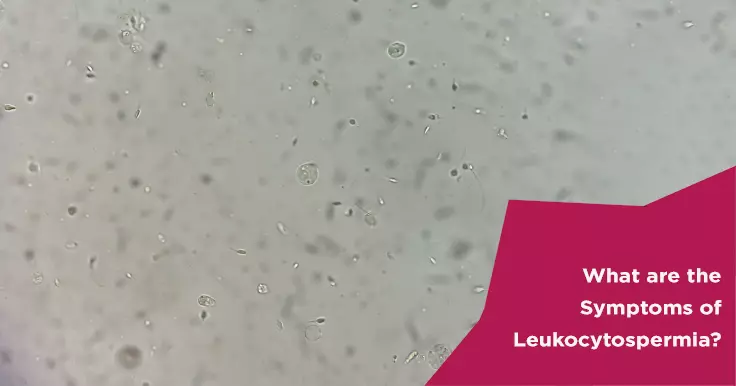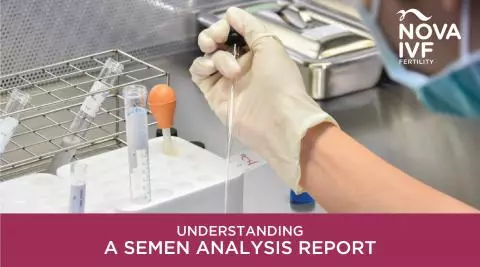Leukocytospermia Symptoms: Impact on Sperm Health

Leukocytospermia is a condition that can cause male infertility. It is characterized by an abnormally high white blood cell count in one's semen sample. According to the World Health Organization, 1 ml of semen should contain a maximum of 1 million white blood cells. In the case of men suffering from Leukocytospermia, the WBC count in semen is much higher. High blood cells are generally considered to be protectors but when present in such high concentrations, they can damage sperm and contribute to infertility.
Symptoms of Leukocytospermia:
Leukocytospermia weakens sperm cells and damages the genetic material within them. The most common symptoms associated with this condition are:
- Change in semen color: Semen is usually a whitish- translucent fluid. In the case of Leukocytospermia, this fluid can take on a yellowish appearance. However, it is not the only condition that can cause yellowing of semen.
- Abnormal sperm morphology: Sperm cells should ideally have a bulbous head and a long tail so that they can swim through the cervical fluid and fertilize an egg. However, in the case of Leukocytospermia, sperm may have an abnormal shape. This is because white blood cells release a substance known as reactive oxygen species that attack the sperm membrane and causes damage to the structure. This impairs sperm movement.
- Reduced sperm count: The effect of reactive oxygen species on sperm can also reduce the concentration of sperm in semen. Normal healthy sperm density ranges from 15-200 million sperm cells per milliliter of semen.
- Infertility: The combination of a low sperm count and abnormal sperm morphology can make it difficult for a man to impregnate his partner. A couple's inability to conceive naturally despite having well-timed, unprotected sexual intercourse is known as infertility.
Leukocytospermia can be easily treated and a man can father children naturally in most cases. Hence, if you notice any of the above symptoms, you must consult a doctor to confirm a diagnosis and start treatment is required.
 Infertility Counselling
Infertility Counselling Female Infertility Treatment
Female Infertility Treatment Andrology Treatment
Andrology Treatment Fertility Enhancing Surgeries - Female
Fertility Enhancing Surgeries - Female Fertility Enhancing Surgeries - Male
Fertility Enhancing Surgeries - Male Endoscopy Treatment
Endoscopy Treatment IUI Treatment
IUI Treatment IVF Treatment
IVF Treatment ICSI Treatment
ICSI Treatment Advanced IVF Solutions
Advanced IVF Solutions Embryology
Embryology Vitrification Egg, Embryo, Sperm Freezing
Vitrification Egg, Embryo, Sperm Freezing Preimplantation Genetic Testing (PGT)
Preimplantation Genetic Testing (PGT) Donation Program Embryo / Egg / Sperm
Donation Program Embryo / Egg / Sperm Self-cycleTM IVF
Self-cycleTM IVF

 Self-cycleTM IVF
Self-cycleTM IVF











